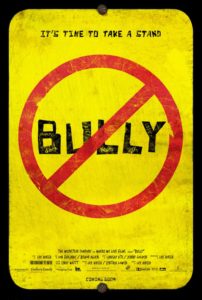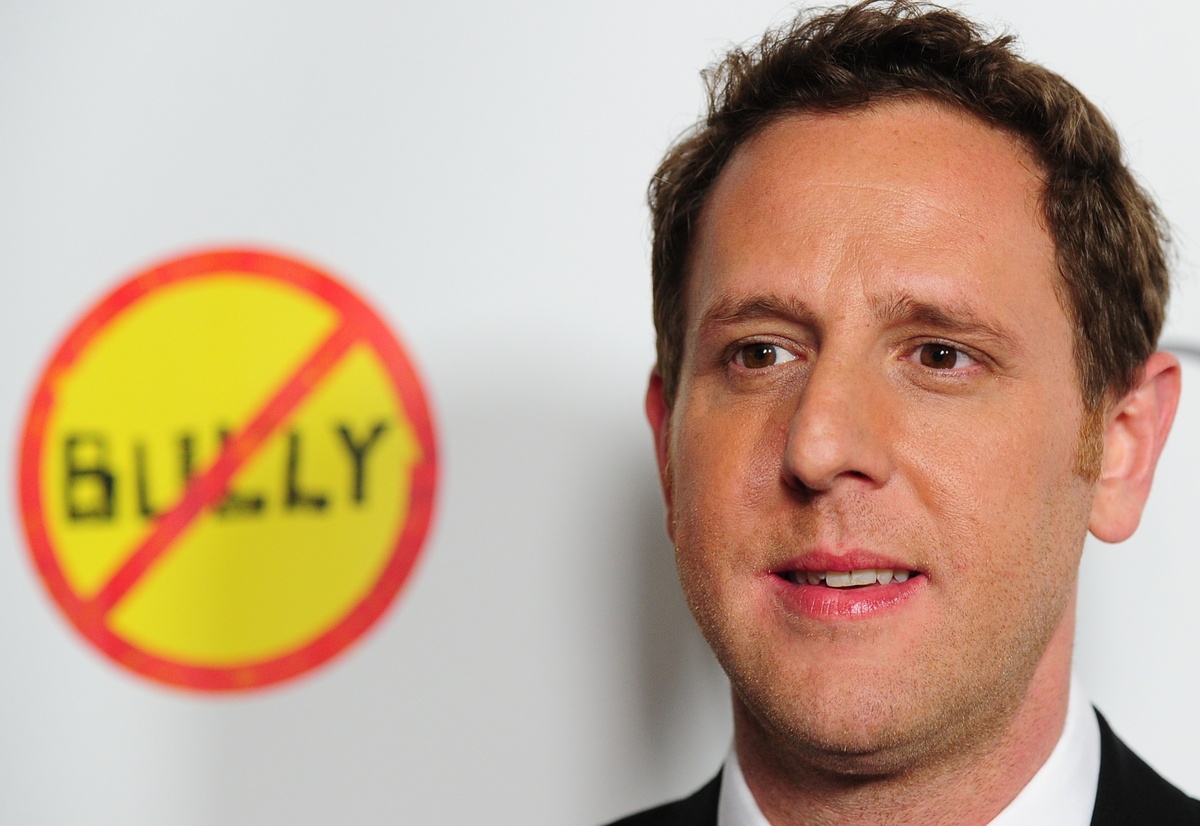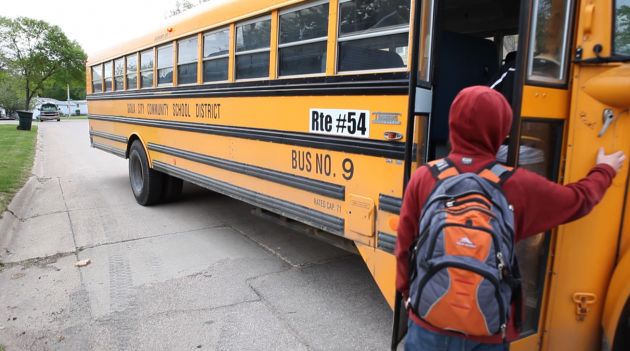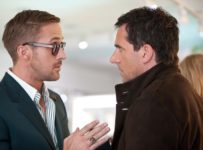 Documentarian Lee Hirsch was in Australia this week promoting his latest film Bully. Debuting at the Tribeca Film Festival last year, Bully follows group of families across the US as they deal with the tragedies and consequences of bullying at school. We were lucky to sit down with the director and discuss his film.
Documentarian Lee Hirsch was in Australia this week promoting his latest film Bully. Debuting at the Tribeca Film Festival last year, Bully follows group of families across the US as they deal with the tragedies and consequences of bullying at school. We were lucky to sit down with the director and discuss his film.
The film has become part of a national, and indeed international campaign, called The Bully Project, and aims to be a self-sustaining movement to aid the voiceless in the fight against bullying in all walks of life. Prior to this, Hirsch was best known for his award-winning documentary Amandla!: A Revolution in Four-Part Harmony, which examined the struggles of black South Africans against Apartheid through music.
We need to thank Roadshow Films for allowing us time with the filmmaker, and of course, Mr. Hirsch for her generous time and answers. Bully is released in Australia on 23 August 2012 from Roadshow Films.
Featured Photo Credit: Boston.com
Welcome to Sydney. Congratulations on the film. It’s a wonderful film, and I loved watching it. Meant a lot to me as well.
Thank you.
On that, as a stated victim of bullying yourself, how did you find the right approach to it as a documentarian?
Trial and error. [Laughs] That’s how I always find the right approach to these things. Fail and get up. You know, I started out with a really broad idea for the film. It would be the life-cycle of bullying from the playground to the workplace, to politics to the way nations treat each other, and there would be experts and we’d look at behavioural studies. It was going to be this big broad thing. Once I began talking to these families, we started doing pre-prod and started getting on the phone, just everything kind of fell away. It felt like this is the movie, very simple and in the world of these families.
You just touched on it, that bullying doesn’t stop with the schoolyard, it extends into the workplace, and everyday life. Do you hope people will get something out of this beyond schoolyard bullying?
Oh yeah, I totally do. The things that we hear from our audience connect across all those ideas. Particularly we hear a lot from people still processing the bullying they went through as kids, or they’re dealing with it at work, or they’re an educator and they don’t know what to do about it. It does have lots of intersections. It’s about empathy ultimately, it’s about the bigger question of how we treat each other, and I think people are finding different parallels to it.
The people that you chose, the kids and parents in particular, how did you go about finding them, and was there a larger group that you originally looked at?
There was. We followed probably double the amount of characters and families in the film, so I was out there a lot, travelling all over the place. In the cutting room, it became the film that it is. We found a lot of people through social media, or they’d written into a blog. Kelby’s parents wrote into Ellen [DeGeneres]’s blog looking for help, and her producers were kind enough to connect us. Some things we found through the news, particularly the stories of suicides. Ja’Meya we learned about because it was a national story. I immediately just got on a plane and tracked down where her mum lived, knocked on her door and said “Please, let me tell your daughter’s story”. Alex we met because we had access to the school, and that was a big piece of our work, to find the school that would let us make the movie and do it in a way that we had editorial control. They understood that we were looking at bullying, and they were willing to be transparent, which was really extraordinary to find that.
What about the willingness of the participants. Was there any hesitancy?
There’s a lot of people who wouldn’t be interviewed. Counterpoint elements to Kelby’s story, Ty Smalley’s school. Again, with all the other stories that didn’t make it into the film. There were a lot of opposing forces that didn’t want to participate, but from the victim’s side, from the family’s side, they were really keen to participate. I think ultimately the administrators in the school, in Alex’s school, were kind of reluctant participants. I think they were kind of stuck in it, and I don’t know that they wished that they could make it all go away at some point.
That’s interesting, because the authorities, particularly the school authorities, don’t come off as well as they probably would have hoped. Apart from your relationship with them by the end of the film, how have they responded since the film’s come out?
Well, my relationship with the school’s really good, with the community’s really good, and the superintendent. We filmed in two schools there, and one is not in the film, but our relationship with that school is really good. I went back to East Middle School once after the movie was done. Kirk Smalley and his wife actually did one of the programs, Stand For the Silent, at the school and we came back to film that. I think it’s been a really cathartic thing for them. The editor of the Sioux City newspaper wrote a front page, full page editorial about bullying and how to stop in our community which got picked up by papers across the country. It’s just been a very powerful thing. I think they’ve kind of eaten some mud, and felt like they had mud tossed in their face, but they’ve also been nationally recognised for their courage and leadership. So, I’m just happy that they stood by the film.
I guess the kids as well. Being in a situation where they are already being bullied, the presence of a documentary crew…
Don’t think it’s like a big documentary crew. It’s just me and my producer.
What I’m really asking is did you ever feel your presence changed the way other kids were looking at them?
While I tried really hard. It was only really in Alex’s world that there was the possibility that kids would know. So we had a lot of decoy kids, and tried really hard not to make it apparent that Alex was the subject, although I’m sure some kids eventually figured it out. Alex has been very clear that things weren’t better or worse when I was around, that this is what his life was like. I really believe that, we just became wallpaper really quickly.
Since the film has come out then, since he’s been the focus, have you kept in touch with those kids?
Oh yeah. I talk to them all the time. I see Alex and Kelby in particular all the time. They come to lots of screenings and do a lot of public speaking, they’ve become advocates now. Alex is now a night and day different kid, he’s confident and outgoing. For viewers, it brings them a lot of joy to see the footage of him now, which you can Google and find. It’s really great.
I saw recently an article where he’d moved school…
He moved school. There’s a great piece in The Des Moine Register with a video of him. Just two weeks ago, he got this youth award in San Francisco, it’s called the Great American No Bull Challenge. He was on the stage with Sean Kingston and he took the mic started freestyle rapping. Sean gave him a beat. He just killed it. It’s been awesome watching him grow up.
It’s terrific to hear. With this film, this is obviously something you want as many people as possible to see. Was there ever any thought of releasing it freely, making use of the channels that the youth would possibly be into. Say YouTube…
The South Park argument?
Well, I actually only read about that argument this morning.
At the end of the day, the movie is going to be on those channels anyway. Without these guys [Roadshow Films], I wouldn’t be talking to you. People bitch and moan, but we know about a film because a distributor is pushing it, and doing word of mouth screenings and printing posters, booking it in theatres. Putting people like me in front of people like you. I don’t really buy the argument. I also don’t really buy the argument that there’s anything to be gained by watching the movie by yourself on your iPad or your laptop in crummy quality alone, without anybody to process versus seeing it in a collective environment. I believe in cinema. I believe in the power of cinema. It always takes economics to get movies into cinemas.
Well that leads into this community that you’ve built as a result of this film as well, and I think that’s really important. What’s been one of the most surprising things that you’ve found that’s come out of this film, or perhaps while shooting the film?
I think that the universality of story. That this is a story that’s really universal. I don’t go through a day, it’s not just because I’m out doing the Bully thing, but if I just mention it. My cab driver has a story. Or the other day, I was crossing to see it in Canada, and the customs guy said ‘What do you do?’. I say I’m working on this movie about bullying. He says ‘Oh my god, my son. We’re just beating our heads against the wall’. It’s like, Meryl Streep stood up at a screening in New York and talked about how she was horribly bullied. How her bullies chases her into a tree, and beat her legs until she bled. It’s just so universal. That’s been pretty amazing.
What do you think is the next step after this film then? Beyond the film and the communities that you’ve built?
My hope is that one the DVD is out, it’s going to pretty much be evergreen required viewing in schools. We built a huge campaign with resources, and support for educators and a facilitation guide. A special needs guide, webinars and tons of support. To date we’ve been getting whole school districts to go see the film. Seen over 126,000 students that we’ve been able to fund-raise for and pay for them to go see the film and do the training, to take a bus and get a movie ticket. That’s really sweet. I think we’re going to do a couple more hundred thousand. My goal is to get to a million. Then hopefully see it become that idea that hopefully it will be evergreen and get it out into schools for next to nothing, and they will be able to utilise it.
Thank you so much for your time.






